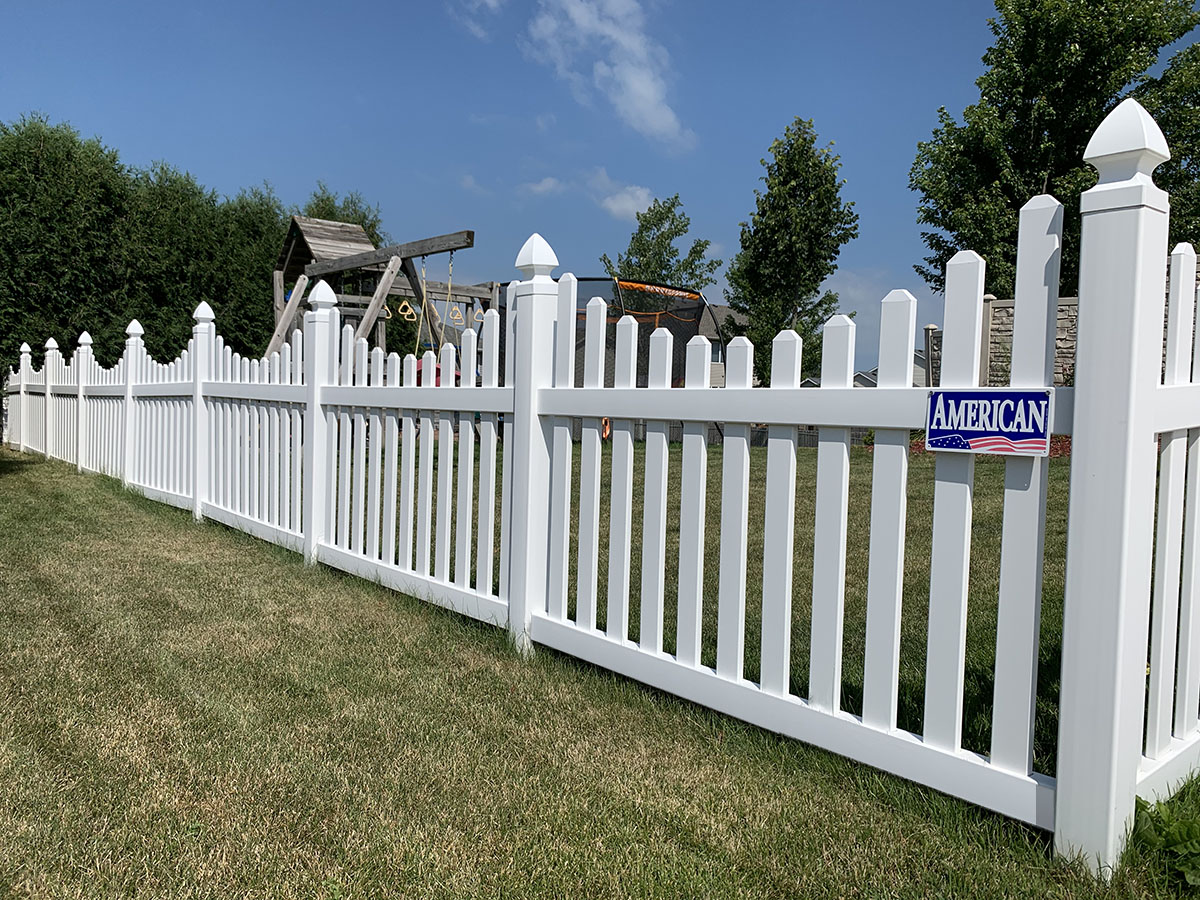Featured
When you make a decision to mount a fencing around your home, it's important to comprehend the permit requirements particular to your area. While setting up a fencing can seem like a straightforward home renovation job, neighborhood legislations and regulations have to be complied with to make sure the setup is legal and certified. Falling short to protect the appropriate permits might lead to penalties or perhaps require you to remove the fence. Below's a comprehensive consider the authorizations you might require for fence installment.
Why Do You Need an Authorization for Fencing Setup? A fence is even more than just an obstacle in between residential or commercial properties-- it can affect safety, home worth, appearances, and even ecological problems. Regional governments call for permits to ensure that fences satisfy certain requirements and do not trigger problems for energies, neighbors, or the neighborhood in its entirety. Permits likewise ensure that the installment follows zoning regulations, developing codes, and safety and security laws.
![]()
Kinds Of Permits You May Require. Structure Permit. A building authorization is among the most usual licenses required for fencing installation. This permit makes sure that the fencing satisfies local building codes. For instance, if you're constructing a fencing over a certain height (typically over 6 feet), you'll likely need a structure authorization. The local building department will usually examine the website and evaluation strategies to guarantee the framework is stable and does not block public rooms or produce risks.
Zoning Authorization. A zoning authorization ensures your fencing conforms with setback, place, and elevation laws. Fencings might require to be set back a particular distance from pathways, roads, or residential or commercial property lines to avoid blockage or disturbance with utilities.
HOA Authorization. You might require to seek approval before installing a fencing if your building is part of a home owners association (HOA) HOAs typically have standards that govern the appearances and framework of fences to guarantee they agree with the neighborhood. You could need to submit your strategies for approval, and the HOA might limit fencing material, height, or style.
Specialized Permits. In some locations, there may be extra permits required for particular circumstances. If your fence is near a secured environmental location or located in a flood area, you might need to acquire specialty permits related to ecological effect. If the fence is in an area with below ground energies, you may require to obtain clearance to prevent damaging pipes or cords.
![]()
Easement or Energy Company Approval. Prior to setting up a fencing, it's vital to check whether the home consists of an easement, such as an energy easement, which could affect where you can place your fence. Easements are locations of land assigned for personal or public utilities, and you may need permission from the energy company or various other authority to construct within this location.
Just How to Discover What Allows You Need. To ensure that you're adhering to all the essential regulations, here's exactly how you can determine the particular authorizations required for your fencing installment:
![]()
Browse Through Your City Government Workplace: The initial step is to examine with your local building or zoning department. Many cities and regions have guidelines available online that define what kinds of permits are needed for fencing setup. If not, checking out the office or calling personally can help clarify the procedure. Inspect Your City's Internet site: Lots of municipalities give information regarding fence installations and the licenses needed through their main internet sites. Some internet sites even permit you to send applications on-line. Speak With a Fencing Installation Expert: If you're not exactly sure concerning neighborhood policies, a specialist fence specialist can aid. They recognize with the permitting procedure and can direct you with the actions. The Consequences of Not Getting a Permit. Falling short to protect the necessary authorizations prior to mounting a fencing can cause considerable consequences. You might be fined or required to get rid of the fence completely. In addition, if you choose to offer your property in the future, the absence of an authorization can discourage prospective purchasers, as they may see it as an indication that the residential property is not certified with regional laws. Making sure that you have the appropriate licenses will save you time, cash, and migraines in the future.
Final thought. Mounting a fencing around your residential building can include both protection and curb allure, yet it is essential to ensure you're complying with the lawful action in the procedure. Researching the specific authorization requirements for your location, including structure permits, zoning policies, HOA authorization, and energy permissions, will certainly aid ensure your fencing setup goes efficiently. Putting in the time to recognize these demands now can save you from costly blunders and possible lawful problems down the line.
Why Do You Need an Authorization for Fencing Setup? A fence is even more than just an obstacle in between residential or commercial properties-- it can affect safety, home worth, appearances, and even ecological problems. Regional governments call for permits to ensure that fences satisfy certain requirements and do not trigger problems for energies, neighbors, or the neighborhood in its entirety. Permits likewise ensure that the installment follows zoning regulations, developing codes, and safety and security laws.

Kinds Of Permits You May Require. Structure Permit. A building authorization is among the most usual licenses required for fencing installation. This permit makes sure that the fencing satisfies local building codes. For instance, if you're constructing a fencing over a certain height (typically over 6 feet), you'll likely need a structure authorization. The local building department will usually examine the website and evaluation strategies to guarantee the framework is stable and does not block public rooms or produce risks.
Zoning Authorization. A zoning authorization ensures your fencing conforms with setback, place, and elevation laws. Fencings might require to be set back a particular distance from pathways, roads, or residential or commercial property lines to avoid blockage or disturbance with utilities.
HOA Authorization. You might require to seek approval before installing a fencing if your building is part of a home owners association (HOA) HOAs typically have standards that govern the appearances and framework of fences to guarantee they agree with the neighborhood. You could need to submit your strategies for approval, and the HOA might limit fencing material, height, or style.
Specialized Permits. In some locations, there may be extra permits required for particular circumstances. If your fence is near a secured environmental location or located in a flood area, you might need to acquire specialty permits related to ecological effect. If the fence is in an area with below ground energies, you may require to obtain clearance to prevent damaging pipes or cords.

Easement or Energy Company Approval. Prior to setting up a fencing, it's vital to check whether the home consists of an easement, such as an energy easement, which could affect where you can place your fence. Easements are locations of land assigned for personal or public utilities, and you may need permission from the energy company or various other authority to construct within this location.
Just How to Discover What Allows You Need. To ensure that you're adhering to all the essential regulations, here's exactly how you can determine the particular authorizations required for your fencing installment:

Browse Through Your City Government Workplace: The initial step is to examine with your local building or zoning department. Many cities and regions have guidelines available online that define what kinds of permits are needed for fencing setup. If not, checking out the office or calling personally can help clarify the procedure. Inspect Your City's Internet site: Lots of municipalities give information regarding fence installations and the licenses needed through their main internet sites. Some internet sites even permit you to send applications on-line. Speak With a Fencing Installation Expert: If you're not exactly sure concerning neighborhood policies, a specialist fence specialist can aid. They recognize with the permitting procedure and can direct you with the actions. The Consequences of Not Getting a Permit. Falling short to protect the necessary authorizations prior to mounting a fencing can cause considerable consequences. You might be fined or required to get rid of the fence completely. In addition, if you choose to offer your property in the future, the absence of an authorization can discourage prospective purchasers, as they may see it as an indication that the residential property is not certified with regional laws. Making sure that you have the appropriate licenses will save you time, cash, and migraines in the future.
Final thought. Mounting a fencing around your residential building can include both protection and curb allure, yet it is essential to ensure you're complying with the lawful action in the procedure. Researching the specific authorization requirements for your location, including structure permits, zoning policies, HOA authorization, and energy permissions, will certainly aid ensure your fencing setup goes efficiently. Putting in the time to recognize these demands now can save you from costly blunders and possible lawful problems down the line.
Latest Posts
Experience the Roaring '20s at Twenties Restaurant
Published Dec 18, 24
1 min read
The Complete Guide to Choosing the Best Dodge SUVs
Published Dec 18, 24
1 min read
Professional Installation for Trusted Efficiency
Published Dec 18, 24
1 min read